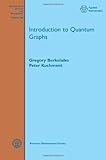Introduction to quantum graphs
Material type: TextSeries: Mathematical surveys and monographs ; 186Publication details: Providence, RI: American Mathematical Society, [c2016]Description: 270 pISBN: 9780821892114 ; 9781470425999LOC classification: QA166.165Online resources: Click here to access online
TextSeries: Mathematical surveys and monographs ; 186Publication details: Providence, RI: American Mathematical Society, [c2016]Description: 270 pISBN: 9780821892114 ; 9781470425999LOC classification: QA166.165Online resources: Click here to access online | Item type | Current library | Shelving location | Call number | Status | Notes | Date due | Barcode | Item holds |
|---|---|---|---|---|---|---|---|---|
 Book
Book
|
ICTS | Rack No 9 | QA166.165 (Browse shelf (Opens below)) | Available | Billno:IN 003 582; Billdate: 2018-01-11 | 00942 |
Browsing ICTS shelves, Shelving location: Rack No 9 Close shelf browser (Hides shelf browser)
Preface
Introduction
Chapter 1. Operators on Graphs. Quantum graphs
Chapter 2. Quantum Graph Operators. Special Topics
Chapter 3. Spectra of Quantum Graphs
Chapter 4. Spectra of Periodic Graphs
Chapter 5. Spectra of Quantum Graphs. Special Topics
Chapter 6. Quantum Chaos on Graphs
Chapter 7. Some Applications and Generalizations
Appendix A. Some Notions of Graph Theory
Appendix B. Linear Operators and Operator-Functions
Appendix C. Structure of Spectra
Appendix D. Symplectic Geometry and Extension Theory
Bibliography
Index
A “quantum graph” is a graph considered as a one-dimensional complex and equipped with a differential operator (“Hamiltonian”). Quantum graphs arise naturally as simplified models in mathematics, physics, chemistry, and engineering when one considers propagation of waves of various nature through a quasi-one-dimensional (e.g., “meso-” or “nano-scale”) system that looks like a thin neighborhood of a graph. Works that currently would be classified as discussing quantum graphs have been appearing since at least the 1930s, and since then, quantum graphs techniques have been applied successfully in various areas of mathematical physics, mathematics in general and its applications. One can mention, for instance, dynamical systems theory, control theory, quantum chaos, Anderson localization, microelectronics, photonic crystals, physical chemistry, nano-sciences, superconductivity theory, etc. Quantum graphs present many non-trivial mathematical challenges, which makes them dear to a mathematician’s heart. Work on quantum graphs has brought together tools and intuition coming from graph theory, combinatorics, mathematical physics, PDEs, and spectral theory. This book provides a comprehensive introduction to the topic, collecting the main notions and techniques. It also contains a survey of the current state of the quantum graph research and applications.--- summary provided by publisher








There are no comments on this title.